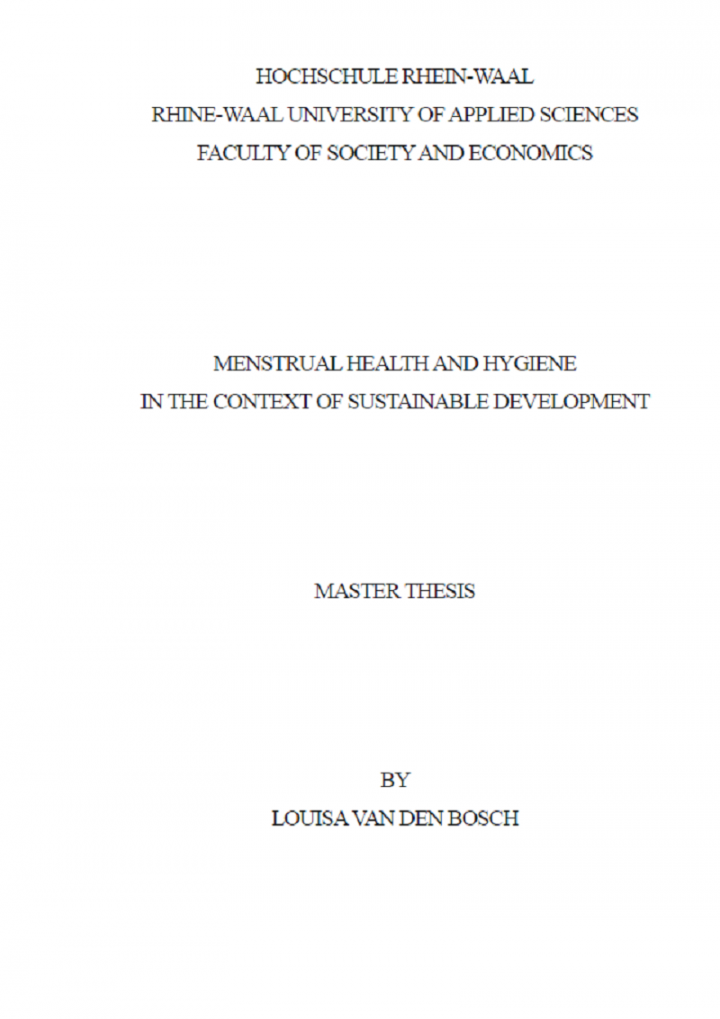MENSTRUAL HEALTH AND HYGIENE IN THE CONTEXT OF SUSTAINABLE DEVELOPMENT Louisa van den Bosch (2023)
The biological process of menstruation affects around a quarter of the world's population. Nevertheless, it is surrounded by secrecy and taboos, and encompasses various sociocultural and structural challenges. These and their impacts negatively affect the lives of menstruators restricting their freedom, choices, participation, and mobility. The concept of Menstrual Health and Hygiene (MHH) aims to tackle these issues so menstruators can lead a dignified and healthy life with no restrictions from realizing their full potential. Good MHH is crucial for sustainable development in the sense of the United Nation’s 2030 Agenda and interventions for its improvement are implemented worldwide. However, a focus of campaigns on the Global South and adolescent girls suggests a narrow view of the topic. This thesis aims to investigate how MHH is outlined in the context of sustainable development using an adapted and combined approach of qualitative content and critical frame analysis. Six selected United Nations resolutions were examined with specific attention to power and gender dimensions. Results showed that certain themes are mainstreamed by the inclusion and exclusion of information. In the documents, MHH is framed as (i) a human rights issue; (ii) it is to blame for school absenteeism; and (iii) it is a problem of the ‘third-world’ girl. It can be concluded that these frames tend to be reductionist, instrumentalist, and universalizing thereby overlooking further causes, effects, target groups, and localities.
Bibliographic information
Louisa van den Bosch (2023). MENSTRUAL HEALTH AND HYGIENE IN THE CONTEXT OF SUSTAINABLE DEVELOPMENT
Filter / Tags
Politicians and local decision makersResearch publicationsEnglishMenstrual Health and Hygiene (MHH)

